第64章 CHAPTER THE FOURTEENTH. GEOFFREY AS A LETTER-WRITE
LORD HOLCHESTER'S servants--with the butler at their head--were on the look-out for Mr. Julius Delamayn's arrival from Scotland.
The appearance of the two brothers together took the whole domestic establishment by surprise. Inquiries were addressed to the butler by Julius; Geoffrey standing by, and taking no other than a listener's part in the proceedings.
"Is my father alive?"
"His lordship, I am rejoiced to say, has astonished the doctors, Sir. He rallied last night in the most wonderful way. If things go on for the next eight-and-forty hours as they are going now, my lord's recovery is considered certain."
"What was the illness?"
"A paralytic stroke, Sir. When her ladyship telegraphed to you in Scotland the doctors had given his lordship up."
"Is my mother at home?"
"Her ladyship is at home to _you,_, Sir."'
The butler laid a special emphasis on the personal pronoun.
Julius turned to his brother. The change for the better in the state of Lord Holchester's health made Geoffrey's position, at that moment, an embarrassing one. He had been positively forbidden to enter the house. His one excuse for setting that prohibitory sentence at defiance rested on the assumption that his father was actually dying. As matters now stood, Lord Holchester's order remained in full force. The under-servants in the hall (charged to obey that order as they valued their places) looked from "Mr. Geoffrey" to the butler, The butler looked from "Mr. Geoffrey" to "Mr. Julius." Julius looked at his brother.
There was an awkward pause. The position of the second son was the position of a wild beast in the house--a creature to be got rid of, without risk to yourself, if you only knew how.
Geoffrey spoke, and solved the problem "Open the door, one of you fellows," he said to the footmen. "I'm off."
"Wait a minute," interposed his brother. "It will be a sad disappointment to my mother to know that you have been here, and gone away again without seeing her. These are no ordinary circumstances, Geoffrey. Come up stairs with me--I'll take it on myself."
"I'm blessed if I take it on _my_self!" returned Geoffrey. "Open the door!"
"Wait here, at any rate," pleaded Julius, "till I can send you down a message."
"Send your message to Nagle's Hotel. I'm at home at Nagle's--I'm not at home here."
At that point the discussion was interrupted by the appearance of a little terrier in the hall. Seeing strangers, the dog began to bark. Perfect tranquillity in the house had been absolutely insisted on by the doctors; and the servants, all trying together to catch the animal and quiet him, simply aggravated the noise he was making. Geoffrey solved this problem also in his own decisive way. He swung round as the dog was passing him, and kicked it with his heavy boot. The little creature fell on the spot, whining piteously. "My lady's pet dog!" exclaimed the butler.
"You've broken its ribs, Sir." "I've broken it of barking, you mean," retorted Geoffrey. "Ribs be hanged!" He turned to his brother. "That settles it," he said, jocosely. "I'd better defer the pleasure of calling on dear mamma till the next opportunity.
Ta-ta, Julius. You know where to find me. Come, and dine. We'll give you a steak at Nagle's that will make a man of you."
He went out. The tall footmen eyed his lordship's second son with unaffected respect. They had seen him, in public, at the annual festival of the Christian-Pugilistic-Association, with "the gloves" on. He could have beaten the biggest man in the hall within an inch of his life in three minutes. The porter bowed as he threw open the door. The whole interest and attention of the domestic establishment then present was concentrated on Geoffrey.
Julius went up stairs to his mother without attracting the slightest notice.
The month was August. The streets were empty. The vilest breeze that blows--a hot east wind in London--was the breeze abroad on that day. Even Geoffrey appeared to feel the influence of the weather as the cab carried him from his father's door to the hotel. He took off his hat, and unbuttoned his waistcoat, and lit his everlasting pipe, and growled and grumbled between his teeth in the intervals of smoking. Was it only the hot wind that wrung from him these demonstrations of discomfort? Or was there some secret anxiety in his mind which assisted the depressing influences of the day? There was a secret anxiety in his mind.
And the name of it was--Anne.
As things actually were at that moment, what course was he to take with the unhappy woman who was waiting to hear from him at the Scotch inn?
To write? or not to write? That was the question with Geoffrey.
The preliminary difficulty, relating to addressing a letter to Anne at the inn, had been already provided for. She had decided--if it proved necessary to give her name, before Geoffrey joined her--to call herself Mrs., instead of Miss, Silvester. A letter addressed to "Mrs. Silvester" might be trusted to find its way to her without causing any embarrassment. The doubt was not here. The doubt lay, as usual, between two alternatives. Which course would it be wisest to take?--to inform Anne, by that day's post, that an interval of forty-eight hours must elapse before his father's recovery could be considered certain? Or to wait till the interval was over, and be guided by the result?
Considering the alternatives in the cab, he decided that the wise course was to temporize with Anne, by reporting matters as they then stood.